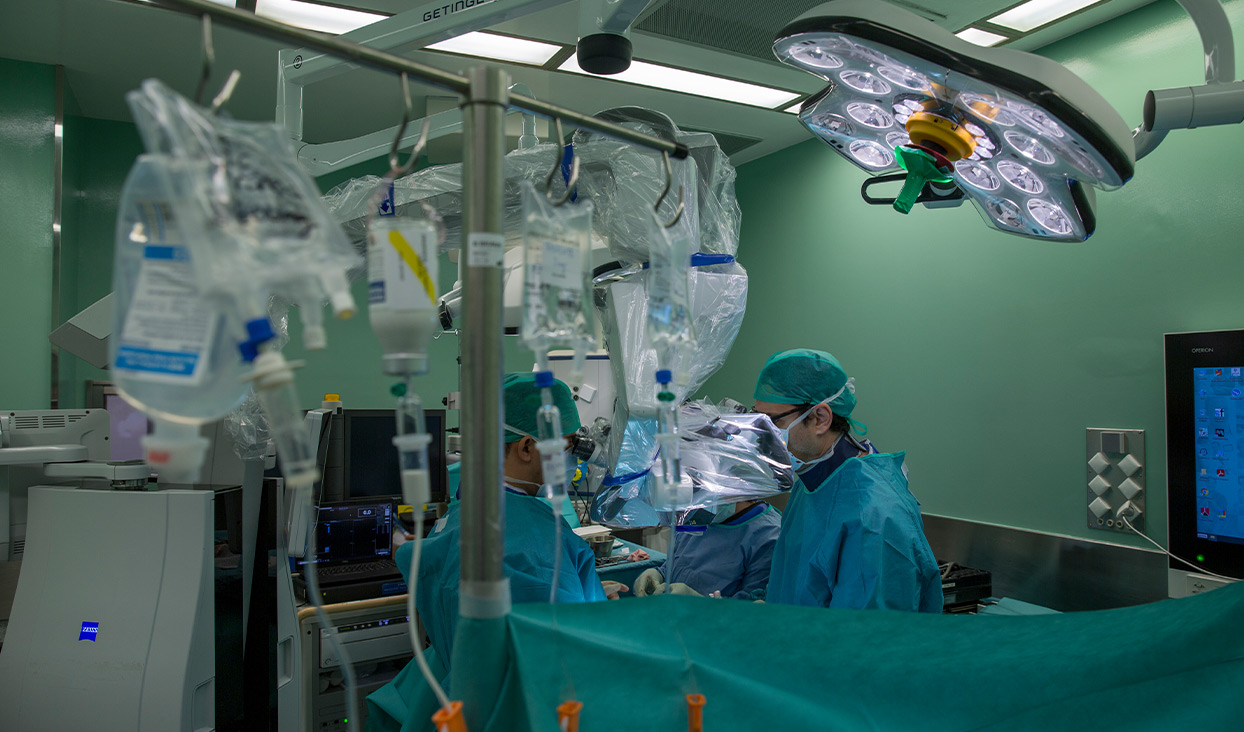Hydrocephalus is a medical condition in which excess cerebrospinal fluid (CSF) builds up in the brain, causing increased intracranial pressure and possibly brain damage.
When other treatment options are not sufficient to control fluid accumulation, hydrocephalus surgery is the best measure to relieve symptoms and prevent complications.

Hydrocephalus surgery provides significant relief from the symptoms associated with this condition, such as headaches, vision problems, mental status changes and walking difficulties. If you are experiencing symptoms of hydrocephalus or have been diagnosed with this condition, we recommend that you make an initial appointment to assess your case and see all available treatment options.
Congenital hydrocephalus
Ventriculoperitoneal shunt (VPS) surgery is suitable for treating congenital hydrocephalus because
it provides an effective way to drain excess cerebrospinal fluid (CSF) from the brain into the abdomen,
thereby relieving intracranial pressure and preventing brain damage. This technique is particularly useful in cases of
congenital hydrocephalus, where the natural CSF drainage system is compromised from birth. The DVP
helps to maintain a proper balance of fluid in the brain, which may improve symptoms associated with
congenital hydrocephalus and promote healthier brain development in the patient’s future.
Acquired hydrocephalus
Ventriculoperitoneal shunt (VPS) surgery is a suitable option for treating acquired hydrocephalus,
which may be secondary to causes such as head injury or intraventricular haemorrhage, because it provides a
effective method for draining excess cerebrospinal fluid, relieving intracranial pressure, and controlling the
symptoms associated with this condition, thus enabling a better quality of life for affected patients.

© NEUROCLÍNICA QUIRÚRGICA BARCELONA 2026 | ALL RIGHTS RESERVED | DESIGNED BY VILAX